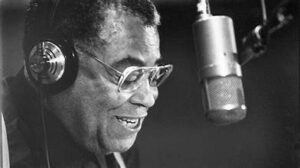The actor, who earned Tony Awards, two Emmy Awards, an honorary Academy Award and a Grammy and whose inimitable voice gave life to Mustafa and Darth Vader, died Monday, his agent said.
One of the most famous voices of all time has gone silent.
James Earl Jones, whose prodigious acting talent was often overshadowed by his distinctive baritone over a seven-decade career both onstage and on the screen, died Monday, his representative said. He was 93.
A contemporary of Sidney Poitier and Harry Belafonte, Jones didn’t land the same coveted leading roles at a time when there were few to go around for Black actors in Hollywood, but he earned unmatched longevity as a character actor, from his first movie credit in 1964’s “Dr. Strangelove” to his reprisal of his role as King Joffer in the 2021 sequel to “Coming to America.”
“James Earl Jones doesn’t get enough credit for being a path-blazer for actors like Denzel Washington who came after him,” said Rae Dawn Chong, his co-star in the 1986 comedy “Soul Man.”
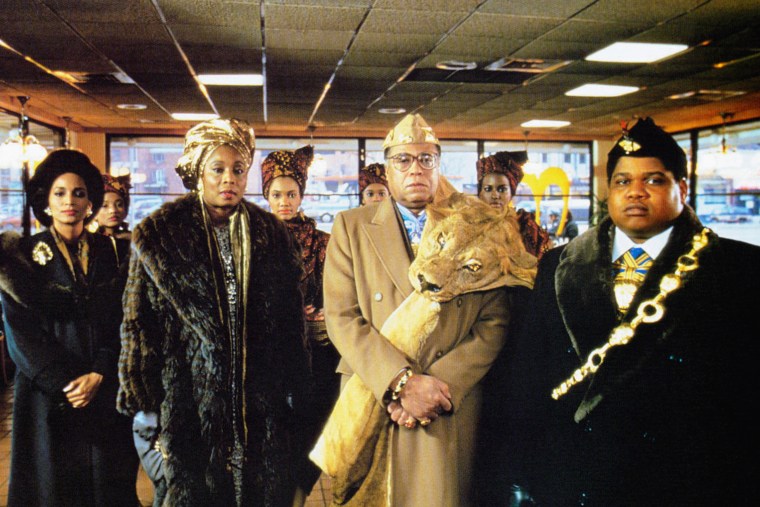
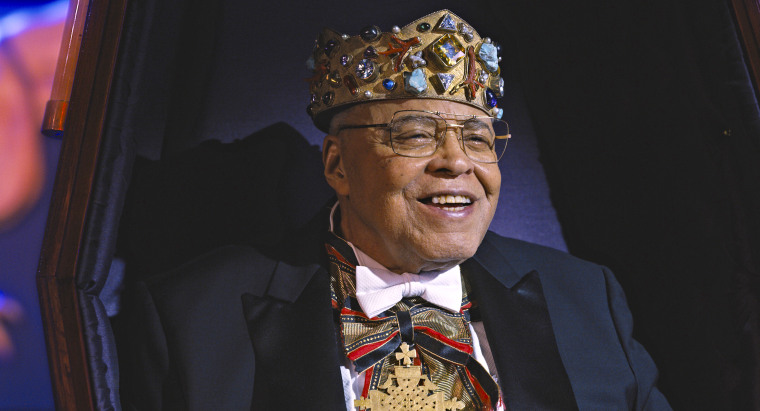
It was treading the boards of Broadway and beyond where Jones forged his place at the top of the marquee. Of his turn as the title character in the 1964 production of “Othello” in Central Park, The New York Times gushed: “Mr. Jones commands a full, resonant voice and a supple body, and his jealous rages and frothing frenzy have not only size but also emotional credibility.”
It was, of course, that resonant voice that would eventually become his trademark.
While he earned two Tony Awards, two Emmy Awards, an honorary Academy Award and a Grammy over his long career, he may be best remembered for an uncredited role in “Star Wars” — supplying the voice for Darth Vader, which has reverberated far beyond that galaxy far, far away.
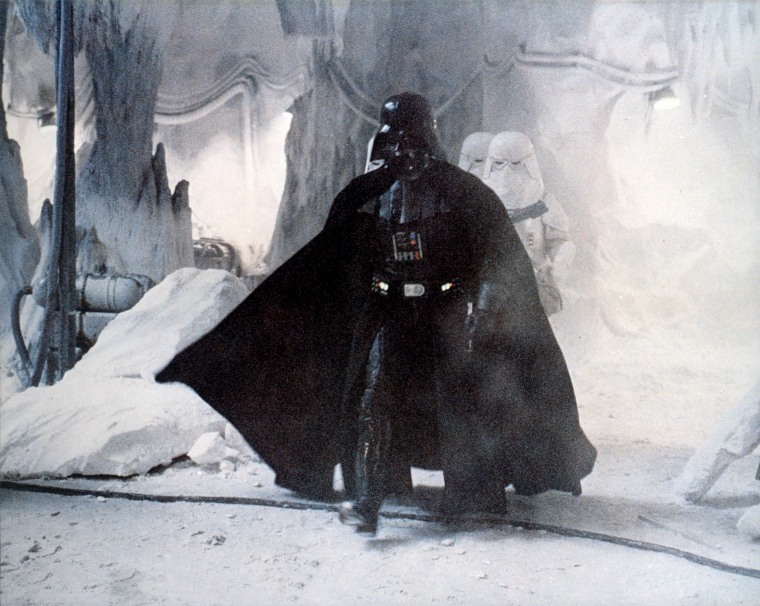
“I’m a journeyman,” Jones told “TODAY’s” Al Roker in a 2017 interview. “I wandered into some interesting situations.”
Making his journey all the more remarkable is that one of the most recognizable voices in Hollywood history had to overcome a severe stutter during his childhood in Mississippi and Michigan before he could take the first step.
Jones, born Jan. 17, 1931, in Arkabutla, Mississippi, said he grew up as a shy and quiet child, wary of speaking and drawing attention to his speech impediment. With his father, Robert, a boxer turned actor, having left home to establish a theater career in Chicago, Jones was shipped to his maternal grandparents’ farm in rural Michigan at age 5.
There, the trajectory of his life changed in high school, when an English teacher taught him how to sound out each word carefully. “I [could] now say things that great writers wrote. I would never have thought of it myself,” Jones told “TODAY” years later.
Jones discovered a love of acting at the University of Michigan, from which he graduated in 1955 after a two-year tour of duty in the Army.
That’s when he moved to New York City, as his father had years earlier, to break into acting. He worked as a janitor part time to pay the bills while he studied at the American Theatre Wing, according to Biography.
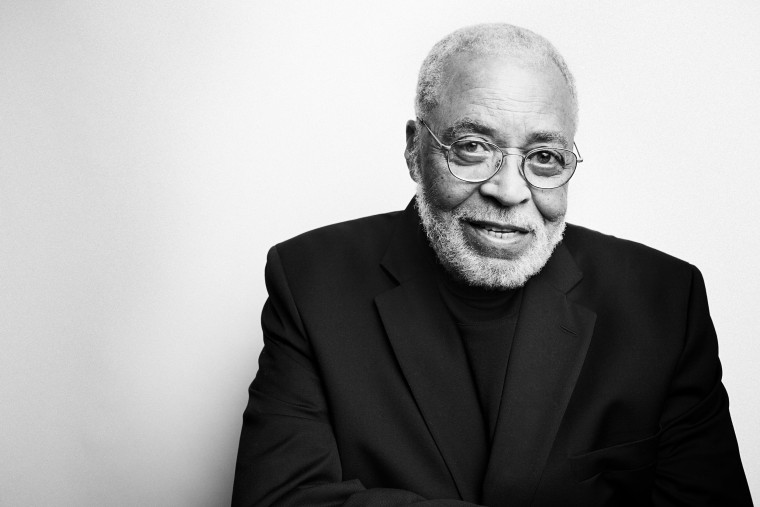
With his booming baritone and stage presence, Jones didn’t have to wait long to get noticed, making his Broadway debut in the late 1950s in the play “Sunrise at Campobello.”
In 1961, he gained acclaim for the U.S. premiere of Jean Genet’s “The Blacks” at the St. Mark’s Playhouse, which co-starred a cast of then-unknowns, including Cicely Tyson, Maya Angelou and Louis Gossett Jr.
Having reconnected with his father, the younger Jones appeared in several stage productions with him in New York, including “Infidel Caesar” and “Moon on a Rainbow Shawl” in 1962 and “Of Mice and Men” five years later.
The younger Jones became a regular in the Shakespeare in the Park program in 1962, with his lauded performance in “Othello” two years later catapulting him to stardom in the New York theater scene.
The production earned him more than critical accolades: Jones would ultimately marry his Desdemona, co-star Julienne Marie. The marriage, which lasted from 1968 through 1972, caused a mild stir at the time given the era’s racist taboos surrounding interracial marriage.
Being in New York, then also the center of the TV universe, had advantages for a working actor. Jones scored his first Emmy nomination in 1964 for a guest-starring turn in the drama “East Side/West Side.”
But national audiences would get their first exposure to him the same year in a small role in “Dr. Strangelove or: How I Learned to Stop Worrying and Love the Bomb.”
Jones hit the pinnacle of any Broadway veteran’s career with the play “The Great White Hope,” in which he starred as a fictionalized version of the real-life boxer Jack Johnson. His performance earned him the Tony for best actor in a play in 1969, breaking the color barrier of the most important acting awards in theater.
“When he was ‘The Great White Hope,’ it was shortly after [Martin Luther] King’s assassination, and there were riots in the streets of the United States,” said Dominic Taylor, a professor of African American theater at UCLA. “And here is this Black man who wins for this role in which he’s Jack Johnson, basically. I don’t think people today are aware of how earthshaking that was.”
Jones would go on to star in the 1970 cinematic adaptation of the play, a turn that would earn him a Golden Globe and his only Academy Award nomination. Jones would lose the best actor Oscar to George C. Scott (“Patton”).
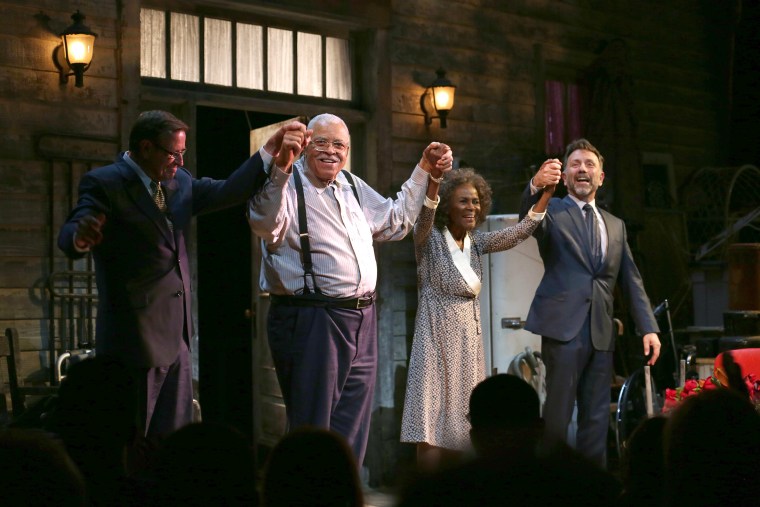
That early success, however, didn’t seem to translate into many more high-profile film roles in the 1970s, although he did star opposite Diahann Carroll in the 1974 dramedy “Claudine.”
“Hollywood back then only had room for a certain number of Black actors,” said Wilson Morales, the founder and editor of blackfilmandtv.com. “He never really got the big roles compared to Sidney Poitier.
“Almost all the roles that he had over the years, they were largely supporting roles,” Morales said of Jones.
Jones would win a Grammy for best spoken word recording in 1977, an early sign of the recognition for his voice.
His most visible on-screen role may have been playing author Alex Haley in the landmark 1977 television miniseries “Roots,” based on Haley’s family history.
Despite the estimated 130 million viewers who tuned in for “Roots,” it would turn out to be just the second-highest-profile gig he booked that year.
Director George Lucas tapped Jones to do some voiceover work for a quirky space opera called “Star Wars” to dub over Darth Vader actor David Prowse’s heavy British accent, made worse by the muffle effect of the mask.
Jones later said he asked to keep his name out of the credits because Prowse did all the work, but such humility wouldn’t keep him from being enshrined as part of the biggest pop culture phenomenon in modern history.
Jones married the actor Cecilia Hart in 1982, the same year he starred opposite budding action star Arnold Schwarzenegger as an evil sorcerer in “Conan the Barbarian.” The marriage would produce a son, Flynn, the same year, and it would last until Hart’s death of ovarian cancer in 2016.
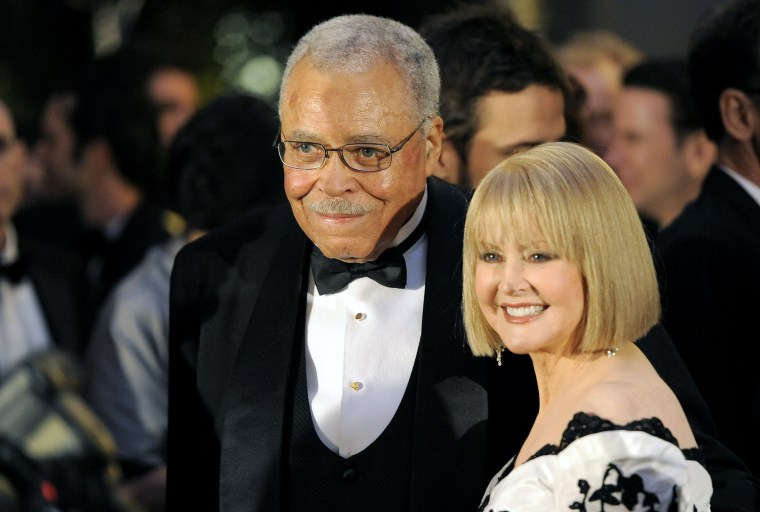
Now a father, Jones continued to work steadily through the 1980s.
Chong remembered the first day she met Jones on the set of “Soul Man,” then intimidated as a girl who grew up with “Star Wars.”
“All the cast was a little afraid of him, not just because he was this towering great of an actor who was Othello in New York and his history,” Chong said. “But in fact, he [turned out to be[ a gentle giant, extremely generous. He’s very kind and soft-spoken.”
Settling into his 50s and past the expiration date for the leading man parts of the era, Jones piled together an impressive run of supporting parts, including roles in “Field of Dreams” (1987), “Matewan” (1987) and “The Hunt for Red October” (1990), a role he would reprise for two sequels.
Perhaps his most famous role of the decade — not counting “The Empire Strikes Back” and “Return of the Jedi” (1983), of course — was as Eddie Murphy’s father in the 1988 comedy “Coming to America.”
“You have to remember ‘Coming to America’ was the biggest Black film of its time,” Morales said. “It was the ‘Black Panther’ of the era.”
He also kept one foot on the boards, earning his second Tony award in 1987 for August Wilson’s “Fences” — a role that Denzel Washington would play in a movie version 29 years later.
In 1990, Jones was cast as the lead in the TV drama “Gabriel’s Fire,” the type of signature role that might have been better appreciated had the series run on a premium cable network two decades later. At the time, however, TV execs considered the material too dark and canceled the show after one season.
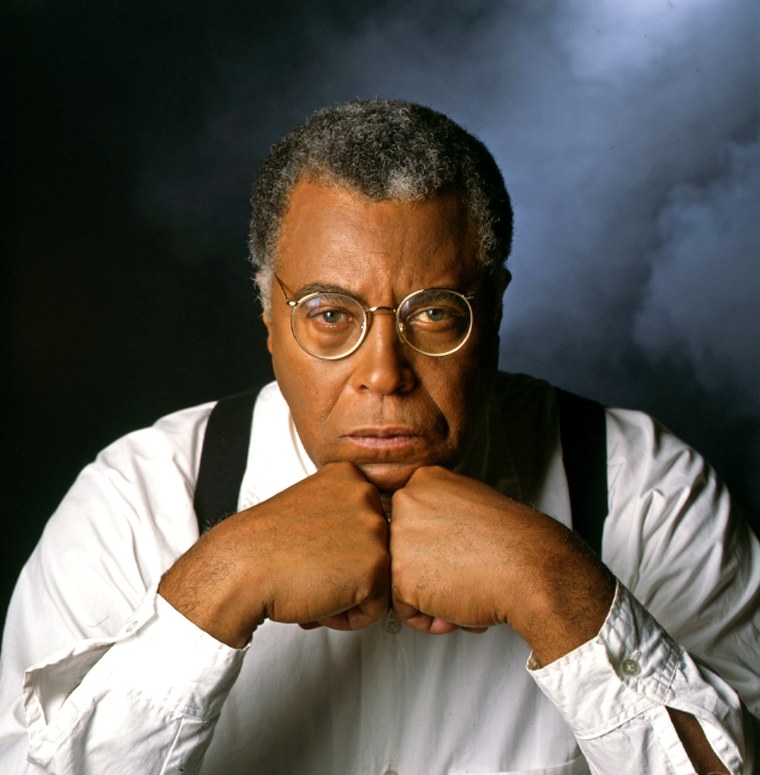
Show co-creator Jacqueline Zambrano remembered being called to meet with Jones about a script during a break in shooting. In most cases, that meant the star would have diva-like demands for rewrites. “I sat down and immediately opened my notebook and I had my pen poised,” Zambrano said. “He started talking about a particular scene and asking me questions. Then we went on to another scene, and, you know, we talked as long as we could until they were ready for him on set.
“We both left, and I looked down at my notebook, and I had nothing written down. He didn’t have any notes. He didn’t want to tell me, ‘I want to fix this.’ He just wanted to understand the text. He just wanted to understand the character better.”
Jones shined enough in that limited time to earn his first prime-time Emmy for outstanding lead actor. (He won a second Emmy that night for his supporting turn in the TV movie “Heat Wave,” about the 1965 Watts race riots.)
In 1994, Jones lent his voice as Mufasa in Disney’s animated blockbuster “The Lion King.” He would return to the role in the live-action version 25 years later, the only actor from the original voice cast to return.
Over the ensuing three decades, Jones continued to work continuously — even after he was diagnosed with Type 2 diabetes in 1995. He racked up Emmy nominations with guest-starring appearances on “Picket Fences,” “Under One Roof,” “Frasier” and “Everwood.” On Broadway, he notched two more Tony nominations — for a 2005 production of “On Golden Pond” and for a revival of Gore Vidal’s “The Best Man” seven years later.
In 2011, Jones was awarded an honorary Academy Award for his career as a whole. That he never won an Oscar for a specific movie role, denying him the coveted EGOT, is a lingering symbol of just how much he was underappreciated over a prolific and profound career.
Taylor, the UCLA professor, always includes a clip of Jones in the 1987 production of “Fences” in his master class on acting.
“He was a gargantuan presence but such a fine, precise, attuned actor onstage,” Taylor said. “It was beautiful to watch him work.”
–
NBC News

